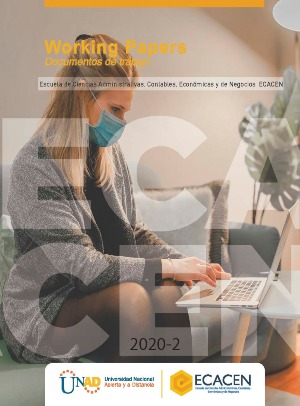Aspectos sociales para fomentar la permanencia en las instituciones de educación superior en ambientes virtuales de aprendizaje
Las acciones realizadas para propiciar la permanencia de los estudiantes en los programas de educación superior son muy variadas y van desde políticas definidas por el ministerio de educación nacional (men), hasta estrategias diseñadas por las instituciones de educación superior (ies). Lo que ocurre es que estas acciones en su mayoría se han orientado a facilitarle a los estudiantes, la mejor manera de superar la incidencia que tienen los factores económicos en la permanencia de sus estudios, y muy pocas se enfocan en aspectos considerados menores, pero que pueden llegar a contribuir en permanencia de los estudiantes, al valorar los talentos o hobbies con que cuentan los estudiantes. Por lo tanto, este documento de trabajo muestra la importancia que algunos factores sociales de la vida universitaria pueden llegar a tener en la permanencia de los estudiantes en sus programas académicos matriculados, lo cual no se aleja de lo que deben hacer las instituciones. Este trabajo es fruto de una investigación no experimental, descriptiva y transversal que permitió describir los factores que más incidencia tienen en la decisión de abandonar o permanecer en un programa matriculado de la escuela ecacen, además de recolectar información primaria de estudiantes catalogados como antiguos, y una revisión detallada otras investigaciones acerca del fenómeno de la deserción, sin embargo es necesario señalar que para el caso de este documento de trabajo se seleccionan solo las preguntas relacionadas con los talentos que poseen los estudiantes y las que indagan acerca de la motivación para permanecer en los programas. De esta manera, se encuentra que los talentos o hobbies que poseen los estudiantes pueden ser utilizados para propiciar un mejor ambiente universitario y contribuir a la permanencia en sus programas, además de verificar que el desarrollo de estos talentos, que también ayudan a la realización del ser humano, puede ser impulsado por las instituciones de educación superior




